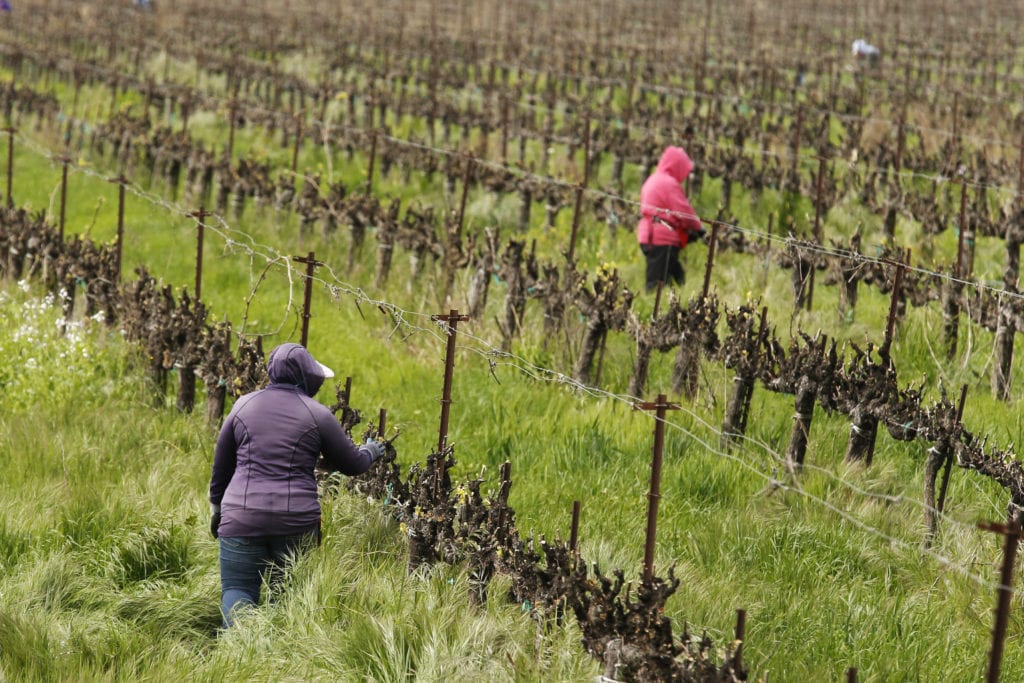The question of who qualifies as an “essential worker” during the coronavirus crisis is no longer limited to health care workers and first responders — it now includes grocery store clerks, restaurant employees and truck drivers.
Local legislators are now pushing to add farmworkers to that list, as they’re filling produce trucks and grocery store shelves.
San Jose Assemblymember Ash Kalra this week called for Gov. Gavin Newsom to expand protections for the roughly 500,000 to 800,000 farmworkers across California, including the ability to stay home and take care of their families amid the COVID-19 outbreak without worrying about the resulting financial strain.
The goal, leaders said, is ensuring these workers – whose hands are the last to touch produce before it enters homes and mouths across the country – stay as healthy as possible amid the increasing number of COVID-19 cases, now up to 952 as of Wednesday in Santa Clara County.
Kalra’s requests include two weeks of paid sick leave, a “hazard pay” hourly rate increase and access to necessary protective gear, such as masks needed to work with pesticides, which are already required by state law.
“California’s farmworkers are the backbone of our agricultural economy,” Kalra wrote in his letter. “Farmworkers are largely undocumented immigrants who enjoy few labor law protections. To put it simply, as we honor the legacy of Cesar Chavez and the economic and social contributions of farmworkers we should take these necessary and key steps to protect farmworkers from this devastating illness.”


Kalra timed the letter with Chavez’s birthday. The labor leader, community activist and former San Jose resident highlighted the inequalities farmworkers experience saying, “It’s ironic that those who till the soil, cultivate and harvest the fruits, vegetables and other foods that fill your tables with abundance have nothing left for themselves.”
While there’s no timeline for when Newsom might respond to Kalra’s proposal, the union Chavez helped form nearly 60 years ago is backing his efforts to protect workers across the country.
“It is imperative that we all take further proactive steps to ensure the safety of farmworkers, protect buyers and safeguard consumers,” United Farm Workers President Teresa Romero said in an open letter to agricultural employers earlier this month. “Agricultural employers have a duty to help all farmworkers feel confident as they address their own health needs as well as those of immediate family members.”
Romero said the $2 trillion Coronavirus Aid, Relief and Economic Security (CARES) Act, which provides $9.5 billion for agricultural programs, could help fund the protections proposed by Kalra.
But Kalra said there’s no guarantee how that money will be divided up – whether to the industries that are negatively affected, farm owners or farmworkers themselves.
“That’s what we have to be very cognizant of, because it’s the farmworker who is currently the most vulnerable in that whole ecosystem,” he said. “There’s no doubt that the undocumented workforce – although they do pay taxes – are not afforded the same benefits that legal residents are. It’s really important for us to acknowledge that and be very explicit about the need for us to offer resources at a state level to fill the gap that they may not be getting from the federal level.”
Given the anti-immigrant rhetoric from the White House, Kalra said undocumented farmworkers are at an even higher risk from the lack of protections during the COVID-19 crisis.
“I think that makes it even more important for those of us that do have a voice to raise our voice for these workers that are an essential part of getting through this crisis,” Kalra said.
Lauren Ornelas, founder and president of the Food Empowerment Project, which works on legislation to improve the lives of farmworkers, said the goal is to demonstrate how certain structural systems are harming farmworkers.
“We’re looking at a system that was already broken when it comes to every aspect of their lives – how we treat them, their pay, any equity situation,” she said.
The Food Empowerment Project is now working on providing necessities, such as groceries and school supplies, for children attending school from home.
“Hopefully this (pandemic) will help people remember that these farmworkers are always the ones who are feeding us,” Ornelas said. “They’re basically putting their health on the line to feed the country. What are we doing for them above and beyond what we already don’t do for them?”
Contact Katie Lauer at [email protected] or follow @_katielauer on Twitter.



Leave a Reply
You must be logged in to post a comment.